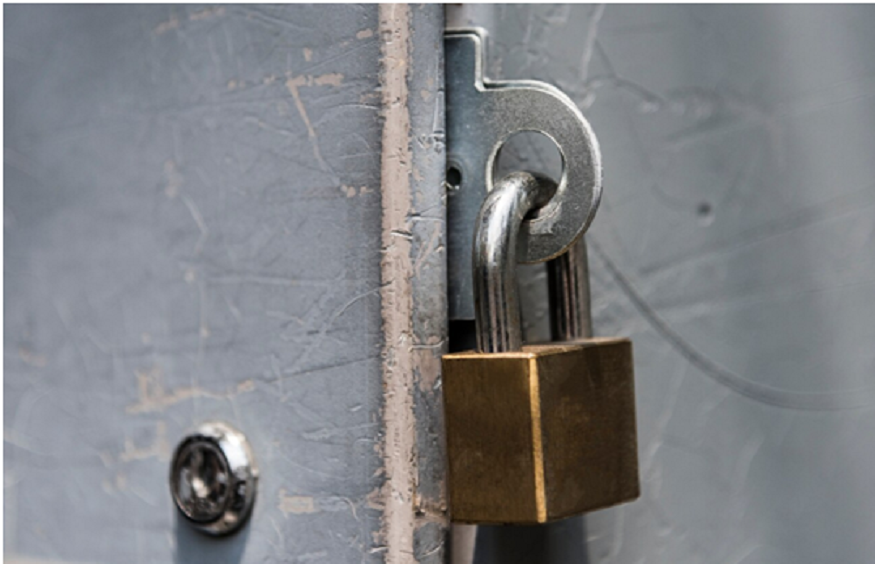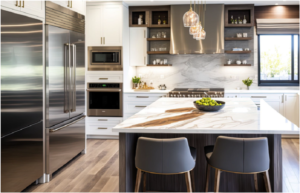
Change Business Locks: Why, When, and How to Do It Right
Maintaining security in a business environment is essential for protecting assets, sensitive information, and the safety of employees. One of the most effective ways to enhance security is to change the locks on your business premises. Whether you’re a small business owner or manage a larger commercial space, understanding when and how to change your business locks can prevent unauthorized access and ensure a secure environment. This article explains the importance of changing business locks, when it should be done, and the steps involved in the process.
1. Why Change Business Locks?
Changing business locks is an important security measure for various reasons. It helps protect your business from potential threats, such as unauthorized access, theft, and security breaches. Here are some key reasons why businesses may need to change their locks:
- Employee Turnover: When employees leave the company, especially those with access to keys or codes, changing the locks is a precautionary measure to prevent unauthorized entry. Even if the keys are returned, there is no guarantee that copies were not made. Replacing locks ensures that only current employees have access.
- Security Breach: If your business has experienced a break-in, attempted burglary, or other security incidents, changing the locks immediately is essential. Intruders may have compromised the security of your locks, and replacing them can help prevent future breaches.
- Lost or Stolen Keys: Misplaced or stolen keys are a common reason to change business locks. If you suspect that your keys have been lost or stolen, it’s crucial to act quickly to eliminate the risk of unauthorized access. Changing the locks gives you peace of mind, knowing that your business is secure.
- Upgrading Security Systems: Modernizing your security system may involve changing your locks to more advanced options, such as electronic or smart locks. Upgrading your locks as part of a comprehensive security plan can provide better control over access and monitoring.
- Change of Ownership or Management: When a business changes hands or a new manager takes over, changing the locks is a recommended practice. It ensures that previous owners or managers no longer have access to the property and provides a fresh start for the new management team.
2. When Should You Change Business Locks?
Timing is crucial when it comes to changing business locks. The following situations are common scenarios where businesses should consider updating their locks:
- Immediately After a Security Incident: If your business has experienced a break-in or any attempt to breach security, it’s important to change the locks immediately. Acting quickly reduces the risk of further attempts and ensures that your premises are secure.
- After Employee Termination: If an employee who had access to keys or codes leaves the company, whether voluntarily or involuntarily, it’s wise to change the locks. This is especially important if the employee left on bad terms or had access to sensitive areas within the business.
- Periodically as a Preventative Measure: Even in the absence of any immediate threat or incident, businesses should change their locks periodically as a preventative measure. Routine lock changes help maintain security and minimize the risk of breaches over time.
- During Renovations or Relocations: If your business is undergoing renovations or moving to a new location, it’s an ideal time to update your locks. Construction crews or previous tenants may have had access to keys, so changing the locks provides a clean slate and improved security.
3. Types of Locks to Consider for Your Business
When deciding to change your business locks, it’s essential to choose the right type of locks for your needs. Commercial properties often have different security requirements compared to residential spaces, so it’s important to select locks that offer the appropriate level of protection. Here are some common types of business locks:
- Deadbolt Locks: Deadbolts are a common choice for businesses and offer strong protection against forced entry. They are typically installed on doors that require high security, such as entry doors and office doors.
- Electronic and Smart Locks: These locks provide advanced security features, such as keypad entry, access codes, and remote control through smartphones or key fobs. Electronic locks are ideal for businesses looking to modernize their security systems and gain more control over access management.
- High-Security Locks: High-security locks are designed to be resistant to picking, drilling, and other forms of tampering. These locks are often used in areas requiring maximum protection, such as data rooms, vaults, or areas containing sensitive materials.
- Keyless Entry Systems: Keyless entry systems eliminate the need for traditional keys and instead rely on access cards, biometric scanning, or codes. These systems are particularly useful for businesses that require frequent changes in access permissions or have a high turnover of employees.
4. Steps to Change Business Locks
Changing business locks involves several important steps to ensure that the process is done correctly and securely. Here’s a step-by-step guide to help you through the process:
- Assess Your Security Needs: Before changing the locks, assess your business’s security needs. Consider the types of areas that need protection, such as entry points, offices, and storage areas. Determine whether traditional locks, electronic locks, or high-security options are the best fit for your business.
- Select the Right Lock Type: Based on your assessment, choose the type of lock that best meets your needs. Ensure that the locks you select comply with local building codes and security standards for commercial properties.
- Hire a Professional Locksmith: For businesses, it is highly recommended to hire a professional locksmith experienced in commercial lock installations. A professional can ensure that the locks are installed correctly, meet security standards, and provide the necessary keys or access codes.
- Inform Employees: If you are changing the locks, make sure to inform your employees about the new access procedures. Distribute new keys or access codes only to those who need them and keep a record of who has access to each area of the business.
- Update Access Control Systems: If your business uses electronic or smart locks, update your access control systems to reflect the new locks and codes. Ensure that any outdated keys or cards are deactivated to prevent unauthorized use.
- Test the New Locks: Once the new locks are installed, test them thoroughly to ensure they function properly and securely. Check for any issues, such as misaligned doors or malfunctioning keypads, and have them fixed by your locksmith immediately.
5. Benefits of Changing Business Locks
Changing business locks provides several benefits, including:
- Enhanced Security: The most obvious benefit is improved security. By updating your locks, you ensure that only authorized personnel have access to your premises, reducing the risk of theft or unauthorized entry.
- Peace of Mind: Knowing that your business is protected by modern and secure locks gives you and your employees peace of mind. It also demonstrates that you are proactive about security, which can improve employee morale and confidence in the workplace.
- Control Over Access: Changing the locks allows you to manage and control access to different areas of your business. You can limit access to sensitive areas and easily update security measures if an employee leaves or if your security needs change.
6. Conclusion
Changing business locks is a vital part of maintaining security and protecting your business assets. Whether it’s due to employee turnover, a security breach, or the need for an upgrade, taking proactive measures to update your locks ensures that your business remains safe and secure. By understanding when and how to change your business locks, you can minimize risks and create a more secure environment for your employees and customers.
If you are considering changing your business locks, it’s important to assess your needs carefully, choose the right type of lock, and consult with a professional locksmith to ensure a secure and efficient process. Remember that security is an ongoing commitment, and updating your locks periodically is an effective way to maintain a safe business environment.
Unico Locksmith wrote this article. Unico Locksmith is a local locksmith located in Maryland. They specialize in residential and commercial lock changes, re-key services, automotive locksmith service, and locksmith qualified emergency situations. Unico Locksmith is the fastest and best locksmith in Maryland.


